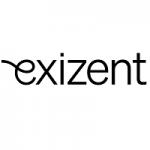The increasing number of digital assets in the modern world has brought with it, new challenges to estate planning and administration. The shift from paper-based billing to digital payments and the rise of cryptocurrencies has created a complex web of digital assets that must be accounted for.
In the past, estate administration was relatively straightforward, as assets were primarily physical and easily transferred. However, the increasing number of digital assets – referring to any asset that exists in a digital form and can be valued, bought, or sold, such as cryptocurrency or online investment portfolios, to personal assets, such as social media profiles and email accounts – has made it much more difficult to keep track of and manage.
Without proper planning, the transfer of digital assets after death can become complicated and time-consuming. In some cases, digital assets can be lost forever if the proper steps aren’t taken to transfer them to a designated person or entity, which can lead to significant financial losses for the estate and create unnecessary stress for loved ones, at a time that is already stressful.
But how pressing a matter is this on the industry? Unsurprisingly, crypto is the most popular asset class held by millennials, Gen Z and Gen X investors, according to recent research from Investopedia, highlighting that, 38% of millennials said they have some form of cryptocurrency compared to only 6% of baby boomers. Cryptocurrencies, such as Bitcoin, have gained significant popularity as a form of alternative investment, and online investment platforms, such as eToro and Bestinvest, have made it easier than ever for individuals to invest in stocks and other financial instruments.
Although many legal professionals may currently only be dealing with the odd case which includes cryptocurrency and digital assets, this will dramatically change and it’s important that legal professionals stay informed and take the necessary steps to manage these assets properly to ensure that individuals estates are protected for future generations.
The complications of digital assets when it comes to wills & probate
As we know, the management of digital assets can create significant complications in the context of wills and probate. Probate for years has been the forgotten industry, left behind as the fast-paced world continued to adapt to the ever-increasing technologies available to them. To add to this, the traditional legal systems are therefore not equipped to deal with digital assets and can cause delays, stress and problems for the executor processing their loved one’s estate. Some of the key challenges and complications include:
- Valuation and inventory: Digital assets can be difficult to value, and it can be challenging to identify and list all of an individual’s assets. This can make it complicated to ensure that all assets are properly accounted for in a will or during probate.
- Accessibility: In many cases, digital assets are protected by passwords and other forms of digital security. Without access to these assets, it may be difficult to transfer them to the appropriate person or entity. This can create significant delays in the probate process.
- Jurisdiction: Digital assets can exist in multiple jurisdictions and may not be recognised by all legal systems. This can create complexities in the transfer of digital assets after death and may require overseas legal coordination.
- Privacy: Digital assets may contain sensitive personal information, and it may be important to ensure that this information is protected during the probate process. This can be particularly challenging in cases where digital assets are stored on third-party servers.
The management of digital assets in the context of probate is complex and challenging. With an ever-changing landscape, ensuring you and your team are equipped to manage the futures estate administration is vitally important.
How technology is helping to solve the problem
With the development of technology, there are more solutions available to the legal industry that specify in helping improve the estate administration process. Software like Exizent is dedicated to helping law firms adapt to the future and prepare for the “modern estate”, speeding up the probate process and reducing the risk of errors and disputes.
Through Exizent’s customer journey-led service design approach, their software is continually developing and adapting to the needs of their customers, and with this approach they can continue to improve their product offering ensuring it’s fit for the future estates.
One of the key features of Exizent’s platform is its ability to automate a number of processes, significantly speeding up the time spent on a case. Users of Exizent can automatically generate Court and Inheritance tax forms, as well as Estate Accounts. Overcoming what was once an error-prone and arduous task, these automated features significantly reduce rekeying and time spent on complex financial calculations, allowing the user to focus on their client and have more time to investigate digital assets within the estate.
In addition to this, with intuitive integrations, users of Exizent’s platform can save time by accessing a deceased individual’s financial information in real time, from bank accounts to mortgages, directly on the platform at the click of a button. It is smart integrations like these that allow cloud-based software to continue to benefit their customers and adapt to the ever-changing industry it’s been built for.
Exizent’s design-led methodology coupled with their agile and iterative development approach mean that they quickly solve real needs of their customers and are able to be fundamentally collaborative. To learn more about Exizent and how their intuitive platform can help solve your current estate administration issues and more importantly, prepare you for the future estate, contact us here today.
This article was submitted to be published by Exizent as part of their advertising agreement with Today’s Wills and Probate. The views expressed in this article are those of the submitter and not those of Today’s Wills and Probate.



















